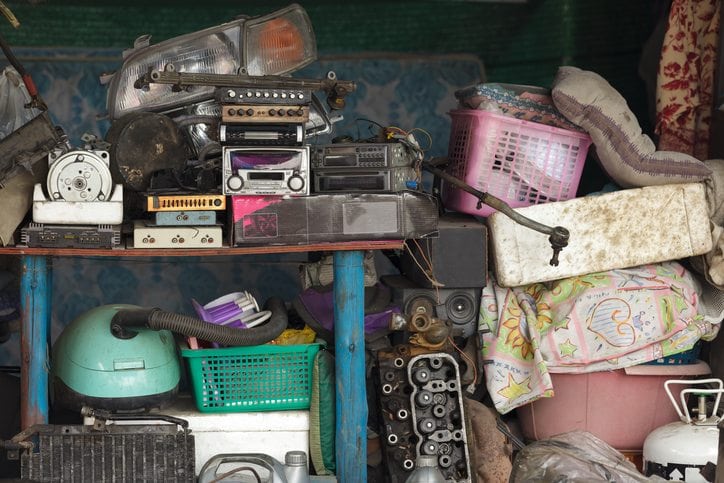To understand hoarding and cultivate a healthy mindset beyond the large-scale purging of piles and boxes of belongings, behavioral health clinicians must first understand what motivates the hoarder.
Researchers with the Hartford HealthCare Institute of Living in Hartford will probe that motivation more closely as part of the new study “Emotional decision-making in pathological hoarding.” The project, funded by a $431,880 grant from the National Institute of Mental Health (NIMH), will be led by co-principal investigators Blaise Worden, PhD, a clinical psychologist in the Anxiety Disorders Center at the IOL, and Kiara Timpano, PhD, at the University of Miami. David Tolin, PhD, ABPP, Anxiety Disorders Center director, will serve as the local co-investigator.
“We are still in the early stages of research when it comes to hoarding,” said Dr. Tolin of behavioral health. “There is some understanding of hoarding disorder but not enough for us to build treatment around. If we can elucidate the core mechanism underlying hoarding, we can develop more effective treatment.”
In the two-year study, the sites plan to recruit 150 participants — 50 with hoarding disorder, 50 with no behavioral health issues and 50 with anxiety. By studying the distinct groups, Dr. Tolin — who, with Dr. Worden, co-wrote a manual for using group cognitive behavioral therapy (CBT) with people who hoard — said the researchers hope to determine if there are behaviors specific to hoarding that should be investigated further. Behaviors that overlap with anxiety might prove less important in determining effective treatment for hoarding.
“The study is designed to look at decision-making abnormalities in individuals with hoarding disorder,” Dr. Worden explained. “We know individuals with pathological hoarding have trouble making decisions. However, that may only be a problem under certain conditions, such as if the person is feeling strong emotions. We are examining multiple forms of decision-making and whether these cognitive abilities vary in different contexts, primarily under negative emotions.”
The researchers propose individuals with hoarding will have more trouble making decisions than people with anxiety, depression or no behavioral health concerns. They also expect, Dr. Worden said, the difficulty to be most pronounced under conditions of strong negative emotions and when making specific types of decisions, such as prioritizing the importance of large amounts of information.
The NIMH proposal is “innovative,” according to Dr. Tolin, because it borrows protocols from the field of behavioral economics for its hypothesis. Behavioral economics is the study of how people make decisions, and Dr. Worden applied it more broadly to mental health disorders.
“This should help us understand the decision-making mechanisms of hoarders,” Dr. Tolin noted. “We believe hoarders have deficits in their capacity to make effective decisions, and that is exacerbated under emotional strain. Not only can they not decide what they need to keep and what they should throw away, they can often not come to simple decisions such as what to order off a menu.”
Hoarding Disorder is a neurobiological disorder affecting up to 5 percent of people, characterized by an attachment to objects, difficulty parting with possessions and the resulting clutter. People with this disorder are thought to have problems with information processing, beliefs about possessions and/or emotional distress about throwing objects away.
“At this point, treatment is antidepressants and group cognitive behavioral therapy as the person practices skills for sorting, discarding and organizing belongings,” Dr. Tolin said.
Dr. Worden noted it has been a priority to find new ways of addressing Hoarding Disorder.
“Once we can identify specific decisional deficits in Hoarding Disorder, we can better identify which treatment strategies — CBT or otherwise — might be most the beneficial treatment,” she said. “We are focusing on specific domains involving decisions that might be related to anticipation or the experience of negative emotion, concepts such as risk and uncertainty.
“Our study uses a gambling task commonly used in the behavioral economics literature to assess decision-making. With it, we can assess whether people make cautious versus risk-taking decisions, and what factors may influence these responses, such as the amount of information available or current mood.”
For more information on hoarding treatment at Hartford HealthCare’s Institute of Living, click here.


